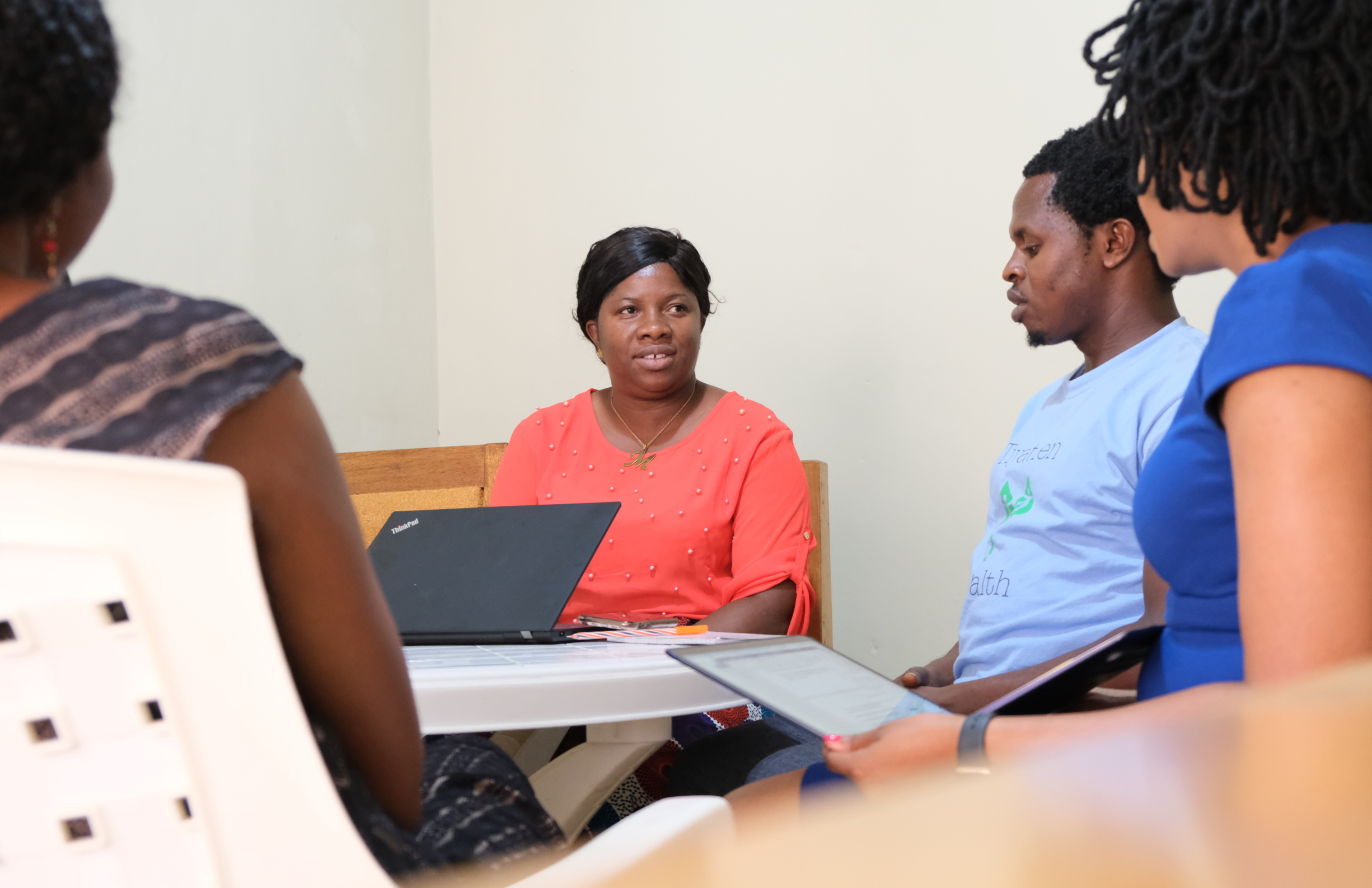“Women are bearing the brunt of COVID-19,” explains Savior Mendin, Last Mile Health’s County Manager for Grand Bassa, Liberia. “Naturally, women are called upon to take care of their children and families which has a huge impact on emotional and psychological well being.”
Public health emergencies exacerbate health inequities across gender, race, and socioeconomic status. While evidence shows that men are more vulnerable to serious or deadly cases of COVID-19, the pandemic will likely take a greater toll on women.
Women comprise 70% of health workers globally and even higher shares of care-related occupations such as nursing, midwifery and community health work. In normal times, women spend an average of 4.1 hours a day—compared to 1.7 hours a day for men—on unpaid care and domestic work. With COVID-19 forcing people inside, closing schools and disrupting employment, women have shouldered additional caregiving and household responsibilities. This puts an increased burden on women, limiting their potential for income generation and increasing their risk of infection when they are expected to care for sick family members. Compounding the economic toll of unpaid labor is the scarcity of resources for women’s critical health needs, as they are less likely to have access to routine health services, essential medicines and vaccines, and maternal and reproductive healthcare. Further exacerbating this problem is the reprioritization of resources to address the urgent health emergency.
“It should come as no surprise that health-seeking practices are being altered,” adds Savior. “Women are afraid of being infected at health facilities so they will delay or avoid seeking care thus increasing the risk of maternal morbidity and mortality.”
Early estimates of the indirect effects of COVID-19 show devastating impacts for maternal mortality. Nearly 60,000 additional women could die of maternal health complications over a six-month time period as a result of COVID-19. As women face increasing barriers to accessing health services, the progress the world has made towards gender equality is being threatened.
“If we want to ensure that the health gains we have seen in previous years continue, we need to make sure women have a voice when it comes to decision making,” says Last Mile Health’s Roseline Menden, a Senior Manager for People Operations in Monrovia, Liberia.
“Most of the current information dissemination has shifted entirely to COVID-19 education and response. We know that there is other information that is still critical, including sexual and reproductive health.”
A gap in access to health information correlates with a lack of representation of women’s voices. While women are disproportionately affected by COVID-19, they’re not being included in the decision-making process for policies that impact them. Despite making up the majority of the global health workforce, women only hold 25% of leadership positions in the field. In Liberia, decision makers at the local and national level are mostly men. We learned during Ebola that too often community engagement is focused mostly on male gatekeepers and on male community leaders, excluding women’s voices and leading to inequitable responses to the pandemic.
“Women are still grossly underrepresented in decision-making roles. At the subnational level, where I currently work, men often account for more than 90% of meeting participants and are the primary decision makers during these meetings,” explains Savior. “This is due in part to the fact that the majority of [women] are still at the bottom of the career ladder. This top down decision-making approach robs talented women of the opportunity to contribute to innovative, cost effective, and context appropriate policies and interventions.”
When it comes to the direct and indirect effects of COVID-19, gender matters. The needs of women—and people who identify as women—must be prioritized as part of a comprehensive response.






